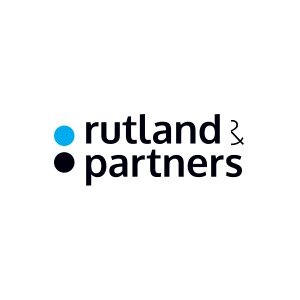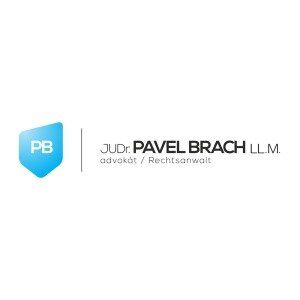Best Public-Private Partnerships (PPP) Lawyers in Czechia
Share your needs with us, get contacted by law firms.
Free. Takes 2 min.
Or refine your search by selecting a city:
List of the best lawyers in Czechia
About Public-Private Partnerships (PPP) Law in Czechia
Public-Private Partnerships (PPP) in Czechia refer to collaborative agreements between public authorities and private sector entities designed to finance, build, and operate projects or services traditionally provided by the public sector. These partnerships can involve infrastructure projects such as roads, hospitals, schools, energy facilities, and public buildings. In Czechia, PPP arrangements are guided by a mix of national and EU regulations, with an emphasis on transparency, competition, and public benefit.
Why You May Need a Lawyer
Engaging in a PPP project in Czechia is a complex process that involves navigating various legal, financial, and contractual requirements. Here are common situations when legal assistance may be crucial:
- Understanding procurement laws and tendering processes for PPP projects
- Drafting, negotiating, and reviewing PPP contracts
- Ensuring compliance with local and EU regulations
- Establishing risk-sharing frameworks and dispute resolution mechanisms
- Assessing public versus private interest responsibilities and liabilities
- Obtaining necessary government approvals and permits
- Managing issues related to project financing, guarantees, and payment structures
- Resolving conflicts between parties or with governmental bodies
Having a legal expert ensures your PPP project aligns with Czech laws and protects your interests throughout the partnership.
Local Laws Overview
PPPs in Czechia are governed by a combination of local regulations and EU rules. Key aspects include:
- The Czech Public Procurement Act, which sets out rules for awarding public contracts, including those under PPP models
- Legislation regarding budgetary responsibility and public finance management
- EU Directives implicated in procurement, competition, and state aid
- Concession laws, which deal with arrangements where a private partner receives the right to operate and profit from a public asset or service
- Administrative law concerning permits and approvals
- Sector-specific regulations, for example, in transport, health, or energy infrastructure
The aim of these laws is to foster fair competition, safeguard public interest, and ensure sound financial stewardship in PPP projects.
Frequently Asked Questions
What is a Public-Private Partnership (PPP)?
A PPP is a cooperative agreement between a public authority and a private company to design, finance, build, and sometimes operate public infrastructure or services.
Are there specific laws for PPPs in Czechia?
While there is no standalone PPP law, these projects are primarily governed by the Czech Public Procurement Act, concession laws, and relevant EU directives.
Which sectors typically use PPPs in Czechia?
Common sectors include transportation (roads and railways), healthcare (hospitals), education (schools), energy, and waste management.
How are PPP contracts awarded?
PPP contracts are awarded through public procurement processes, which are transparent and often involve competitive bidding to select the most advantageous offer.
Can foreign companies participate in PPPs in Czechia?
Yes, foreign companies can participate provided they meet the qualification criteria set out in the tender documentation and Czech law.
Who is responsible for project risks in a PPP?
Responsibility for risks is allocated based on the specific PPP contract, aiming for a balance that assigns each risk to the party best able to manage it.
What funding models are used in Czech PPPs?
Typical funding models include availability payments by the public sector or user fees collected by the private party, or a combination of both.
How long do PPP contracts usually last?
PPP contracts often have long durations, typically between 20 and 30 years, depending on the type and scope of the project.
What happens if a dispute arises in a PPP?
Contracts include dispute resolution clauses, commonly involving negotiation, mediation, or arbitration. Czech courts may also be involved if necessary.
How does the government oversee PPP projects?
The government monitors PPP projects through regulatory agencies, periodic audits, and performance reviews to ensure compliance and protect public interests.
Additional Resources
If you are seeking more information or support regarding PPPs in Czechia, the following resources and organizations can be helpful:
- Ministry of Regional Development of the Czech Republic - Provides official guidelines and tenders for PPP projects
- Czech Public Procurement Office (Úřad pro ochranu hospodářské soutěže) - Oversees public procurement processes
- Czech Chamber of Commerce - Offers advice and updates for businesses engaging in PPPs
- European PPP Expertise Centre (EPEC) - Delivers EU-level insights and technical support for PPP stakeholders
- Local law firms specializing in public procurement and infrastructure law
Next Steps
If you require legal assistance with a PPP in Czechia, consider taking these steps:
- Identify whether your project qualifies as a PPP and understand its procurement requirements
- Gather preliminary documentation about your project and financing structure
- Consult with a lawyer who specializes in PPPs and public procurement law in Czechia
- Ensure that all legal, technical, and financial due diligence is performed before initiating the tendering process
- Engage with relevant public authorities early to clarify process expectations and compliance obligations
- Prepare for contract negotiations by defining roles, responsibilities, and risk-sharing mechanisms
With careful planning and qualified legal support, you can navigate the PPP environment in Czechia effectively and avoid common pitfalls.
Lawzana helps you find the best lawyers and law firms in Czechia through a curated and pre-screened list of qualified legal professionals. Our platform offers rankings and detailed profiles of attorneys and law firms, allowing you to compare based on practice areas, including Public-Private Partnerships (PPP), experience, and client feedback.
Each profile includes a description of the firm's areas of practice, client reviews, team members and partners, year of establishment, spoken languages, office locations, contact information, social media presence, and any published articles or resources. Most firms on our platform speak English and are experienced in both local and international legal matters.
Get a quote from top-rated law firms in Czechia — quickly, securely, and without unnecessary hassle.
Disclaimer:
The information provided on this page is for general informational purposes only and does not constitute legal advice. While we strive to ensure the accuracy and relevance of the content, legal information may change over time, and interpretations of the law can vary. You should always consult with a qualified legal professional for advice specific to your situation.
We disclaim all liability for actions taken or not taken based on the content of this page. If you believe any information is incorrect or outdated, please contact us, and we will review and update it where appropriate.
Browse public-private partnerships (ppp) law firms by city in Czechia
Refine your search by selecting a city.










